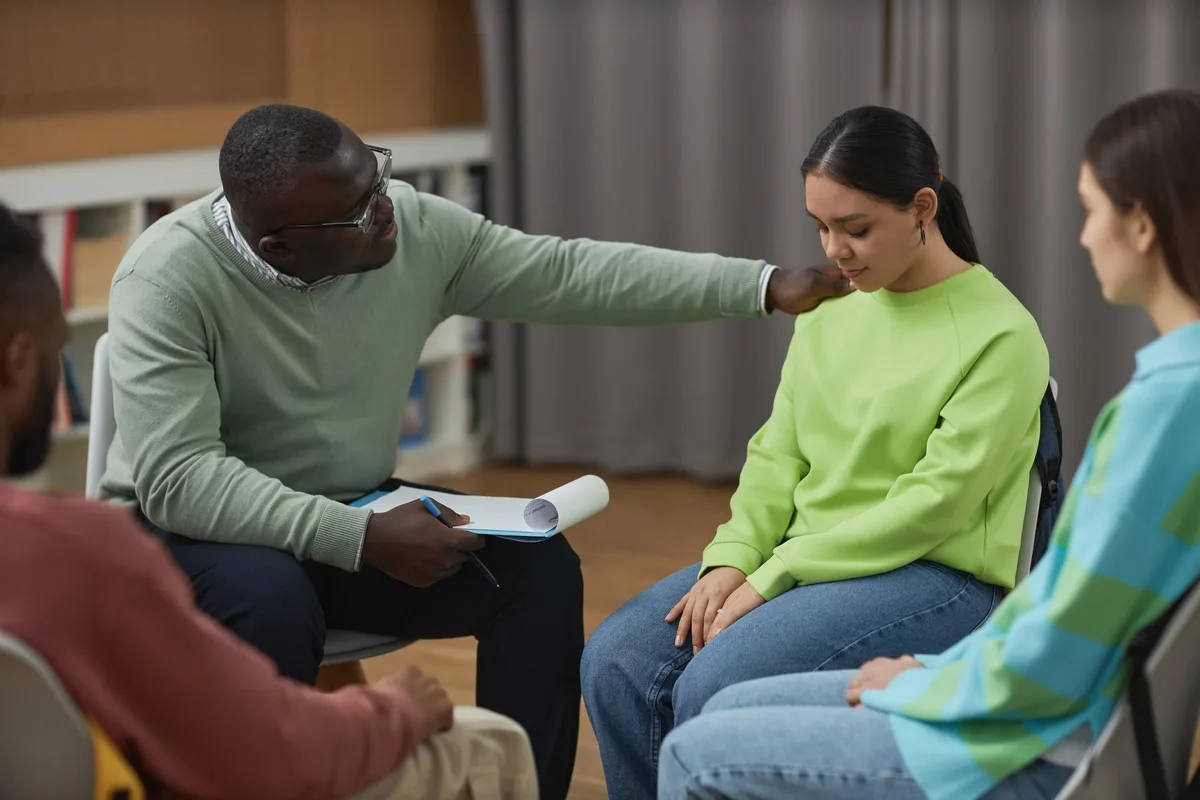24/7 Helpline:
(866) 899-111424/7 Helpline:
(866) 899-1114
Learn more about Group Therapy centers in Bellaire
Group Therapy in Other Cities

Other Insurance Options

WellPoint

Evernorth

Amerigroup

Meritain

Oxford

Horizon Healthcare Service

Humana

Ambetter

Coventry Health Care

Carleon

Access to Recovery (ATR) Voucher

Optima

Kaiser Permanente

Private insurance

Highmark

Sutter

Health Net

Providence

UnitedHealth Group

Self-pay options










Village Network – Brite Futures
Village Network – Brite Futures is a private rehab located in Saint Clairsville, Ohio. Village Netwo...

Crossroads Counseling Services
Crossroads Counseling Services offers outpatient services for individuals struggling with substance ...













































































































































































































Tri County Help Center
Tri County Help Center is a private rehab located in Saint Clairsville, Ohio. Tri County Help Center...



























































































































